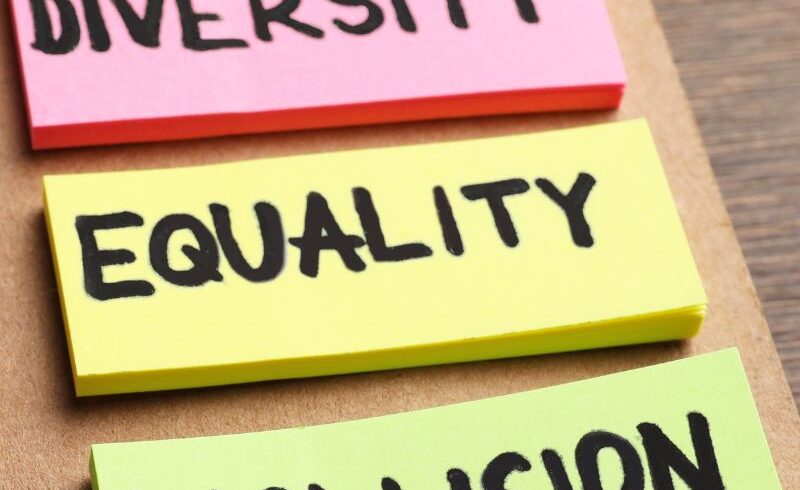Employment discrimination in California is governed by laws designed to protect workers from unfair treatment based on race, gender, age, disability, and other protected characteristics. California’s employment laws provide stronger protections than federal laws, making it illegal for employers to discriminate in hiring, promotion, wages, and termination.

These laws apply to most employers in the state and cover a wide range of discriminatory practices. Understanding these protections helps employees recognize their rights and employers maintain lawful practices in the workplace.
Understanding Employment Discrimination in California
Employment discrimination in California involves unfair treatment based on specific personal characteristics. It is governed by laws that protect employees and job applicants from bias during hiring, promotion, termination, and day-to-day work conditions.
Definition and Types of Employment Discrimination
Employment discrimination occurs when an employer treats an employee or applicant unfavorably because of a protected characteristic. Common types include discrimination based on race, gender, age, disability, religion, sexual orientation, and national origin.
Discrimination may show as harassment, wrongful termination, unequal pay, denial of promotion, or adverse workplace policies. Both intentional discrimination and practices with a discriminatory effect fall under the law’s scope.
Los Angeles employment discrimination lawyers often see cases involving hostile work environments and retaliation, which are also prohibited forms of discrimination.
Protected Classes and Employee Rights
California law protects numerous classes under the Fair Employment and Housing Act (FEHA), often offering broader coverage than federal laws. Protected classes include:
- Race and color
- Sex (including pregnancy and gender identity)
- Age (40 and older)
- Disability (physical and mental)
- Religion and creed
- Sexual orientation
- Marital status
- Genetic information
Employees have the right to a workplace free from discrimination and harassment. They can file complaints with the California Department of Fair Employment and Housing (DFEH) or seek legal advice from a Los Angeles employment discrimination lawyer for serious violations.
State vs. Federal Discrimination Laws
California’s discrimination laws often provide stronger protections than federal laws, such as Title VII of the Civil Rights Act and the Americans with Disabilities Act (ADA). For example, FEHA applies to employers with five or more employees, whereas some federal laws apply only to employers with 15 or more employees.
California also covers additional categories like marital status and sexual orientation explicitly. The state imposes stricter deadlines for filing claims and mandates more comprehensive employer training on harassment and discrimination.
Employers in California, especially in Los Angeles, must comply with both sets of laws, but state laws generally offer employees a stronger and broader legal framework.
Legal Framework and Key Statutes
California’s employment law is built on precise statutes that define protected classes and prohibited behaviors. It also identifies enforcement bodies responsible for ensuring compliance and addressing violations.
California Fair Employment and Housing Act
The California Fair Employment and Housing Act (FEHA) is the primary statute governing employment discrimination in the state. It prohibits discrimination based on race, color, religion, sex, gender identity, sexual orientation, marital status, national origin, ancestry, disability, medical condition, age, and veteran status.
FEHA applies to employers with five or more employees, including state and local governments. It covers hiring, firing, promotions, pay, training, and other employment terms. The statute also mandates reasonable accommodation for disabilities and religious practices.
Employees or job applicants claiming discrimination under FEHA often seek assistance from a Los Angeles Labor Law Attorney to navigate the statute’s detailed procedural requirements and strict filing deadlines.
Role of the California Department of Fair Employment and Housing
The California Department of Fair Employment and Housing (DFEH) enforces FEHA and investigates complaints of workplace discrimination. It provides a mandatory administrative process before an employee can file a lawsuit.
DFEH conducts investigations, offers mediation services, and can file civil lawsuits against violators. It also issues right-to-sue notices to complainants, enabling them to bring claims to court.
Employers in Los Angeles frequently work with experienced labor law attorneys to respond to DFEH investigations and to ensure compliance with FEHA regulations. The DFEH’s enforcement powers make it a significant agency in California employment law.
Filing and Resolving Employment Discrimination Claims
Filing a discrimination claim requires specific steps and careful preparation. Claimants must gather evidence and follow legal procedures to increase their chances of a favorable resolution. Various remedies may be available depending on the case’s facts and the applicable law.
Step-by-Step Complaint Process
The process begins with filing a complaint with the California Department of Fair Employment and Housing (DFEH) or the Equal Employment Opportunity Commission (EEOC). The DFEH complaint must generally be filed within one year of the discriminatory act.
After filing, the agency investigates the claim, which can include interviews and document requests. If the agency finds reasonable cause, it may try mediation or issue a right-to-sue notice, allowing the claimant to file a lawsuit.
Claimants often consult an Employment Lawyer during or after this process to navigate complexities and ensure deadlines and legal standards are met.
Evidence and Documentation Requirements
Supporting evidence is crucial and includes written communications, witness statements, performance reviews, and records of disciplinary actions. Specific dates, times, and individuals involved should be documented precisely.
Emails, texts, or recorded conversations that show discriminatory intent or hostile work environments strengthen claims. A Labor Law Attorney can assist in identifying all relevant evidence and organizing it for submission.
Medical or psychological reports may also be important if the discrimination caused emotional or health harm. Accurate, comprehensive documentation aids negotiations and court presentations.
Possible Remedies and Compensation
Successful claims may yield remedies such as back pay, reinstatement, or promotion. Compensatory damages for emotional distress and punitive damages to punish egregious behavior can also be awarded.
In California, the law allows for attorney’s fees and costs to be recovered, which motivates legal representation by a knowledgeable Employment Discrimination Lawyer.
In some cases, injunctive relief may require changes to employer policies or training. Monetary settlements often include agreements that prevent future retaliation against the claimant.
5th Floor
Pasadena, California 91106
#320
Ontario, California 91762






